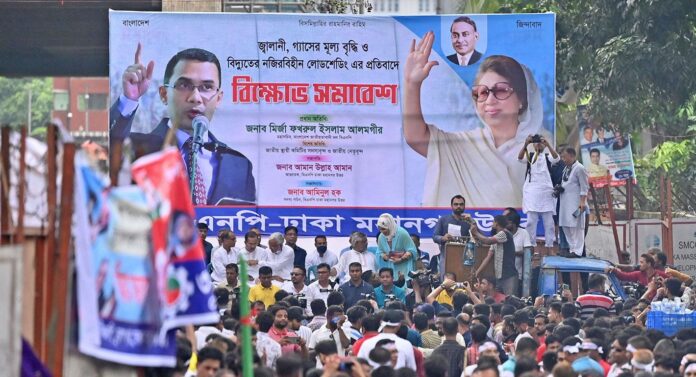Author: Akhand Akhtar Hossain
Affiliation: The University of Newcastle, Australia
Organization/Publisher: Asian Journal of Political Science
Date/Place: March 22, 2020/London, U.K.
Type of Literature: Journal Article
Number of Pages: 20
Link:https://www.tandfonline.com/doi/abs/10.1080/02185377.2020.1741415?journalCode=rasi20
Keywords: Bengali Ethnicity, Language, Culture, Muslim Nationalism, Secularism, Islamism, Bangladeshi Society and Polity, Creeping Authoritarianism
Brief:
Bangladesh got its independence on December 16, 1971, after a violent uprising against the federal government of Pakistan. The causes of separation were based on identity issues (economic disadvantage, ideological, and linguistic differences) that still prevail in Bangladesh. This paper derives the current socioeconomic issues of Bangladesh from its political baggage since 1940. The struggle for a separate homeland was initiated before the partition of the Indian Sub-continent, but it paced up after the separation of Pakistan and India into two independent states. Interestingly, the predecessors of the current regime, who struggled for the independence of Bangladesh, became authoritative after achieving their objective. Sheikh Mujib-ur-Rehman, the late father of Premier Sheikh Haseena, fought for the rights of East Pakistan (Bangladesh) in 1971, and as a result of Indian aggression got independence from Pakistan. The demands presented by Sheikh Mujib to then prime minister of Pakistan Zulfiqar Ali Bhutto, have yet to materialize by the Bengali government. Furthermore, the “saviors” of the nation became authoritative and tried to impose extreme forms of secularism and ultra-secularism, neither of which are desired nor acceptable to the Bengali masses. The paper also criticizes the Islamists, most of them hung under Premier Haseena’s regime, for their failure to establish a moderate system of governance able to remedy the socioeconomic and political problems of Bangladesh. The paper concludes that since both extremes—ultra Secularism and theocratic Islamism—have failed in Bangladesh, the State requires a competitive democratic system of governance that is adaptable across the Bengali society, which means enabling economic growth of the State by promoting social and cultural stability and supporting social justice.
By: Muhammad Taimoor Bin Tanveer, CIGA Research Associate




